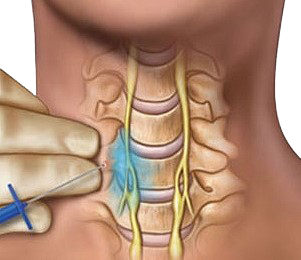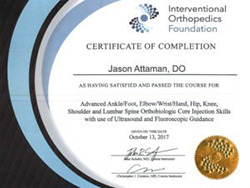Veterans, active military personnel, firefighters, and police officers encounter terrifying events on a regular basis. Rather than numb a person or become “normal,” those events can create trauma and long-term emotional and physical damage.
Having PTSD is not a weakness. On the contrary, it’s a line of defense: PTSD is adaptive, in that it creates hyper-vigilance that can make the difference in a life-or-death situation. Yet, the rest of the time, that hyper-vigilance can lead to outbursts of anger, fatigue, and nightmares that make it difficult to interact with family, friends, or colleagues in non-combat situations. It’s that difficulty in adjusting that makes most PTSD suffers feel powerless – an especially frustrating feeling for those who have seen their own power in action.
PTSD is not just all in your head. It’s as much a physiological, bodily response as a psychological one. Nerves become overactive and remain that way, making it difficult to respond to non-traumatic stimuli in a balanced way.
Dr. Jason Attaman can help. He helps veterans, military personnel, and first-responders overcome PTSD with a treatment known as stellate ganglion block.
Our office is in Bellevue, WA, but we have helped PTSD sufferers from all over the US and Canada (with many Canadian patients coming from British Columbia). I may be able to help you, too. The clinic is easily accessible from British Columbia and Alberta and we offer a telemedicine consultation to verify that you are a good candidate for these injections. Patients can stay overnight in Bellevue, Washington, and have the treatment completed over 2 days.
We offer a substantial discount to US Military veterans, active-duty personnel, and law enforcement. (Many of our patients come from nearby Joint Base Lewis-McChord.)
You can contact Dr. Attaman’s office to book a consultation, or read on to find out more about SGB treatment.
What types of problems lead to PTSD for military personnel or first responder?
Any type of violent encounter or terrifying event can lead to PTSD. In your case, those events may include:
- Wartime combat
- Witnessing a death or serious injury
- Violent confrontations
- Involvement in a shootout
- Witnessing a violent crime
- Fires
- Rape or sexual assault
- On-the-job injuries
No matter what you have seen or experienced, you are not immune to PTSD, even if your line of work was a very conscious decision and you “knew what you were getting into.” Training can help, but it cannot make one immune to PTSD. It’s an injury to your brain and nervous system in same way a bullet wound can be an injury to muscle and bone.
What are the signs and symptoms of PTSD?
Symptoms may include intrusive memories and flashbacks, avoidance of the situations that trigger the PTSD, emotional distress like increases in temper, anxiety, and depression, and changes in physical reactions. Chronic pain, such as stomach pain, fibromyalgia, and migraines all have been associated with PTSD. In general, you feel on-edge all the time, and even more so in specific situations.
You might find you’re easy to startle, or that you have felt the need to use alcohol or drugs to function or at least “take the edge off.” You might get angry, have trouble concentrating, have trouble sleeping, or be overwhelmed with feelings of guilt, shame, or worthlessness. You might have suicidal thoughts and feelings. Yet there is hope.
What do you do to treat PTSD?
We use what’s known as stellate ganglion block. This therapy essentially pauses the malfunctioning flight-or-flight response. It’s essentially a hard reset for your nervous system, allowing you to respond appropriately to stimuli in the future. It can calm your overactive nervous system enough for other, more traditional therapies, such as talk therapy or psychiatric therapy, to work.
Many SGB patients feel immediate relief from their symptoms with they come to us, and go on to receive up to six months of relief. Your family members and friends may also feel immediate relief, in that you may be calmer and better prepared to interact with them.
SGB therapy can work for those who are still actively involved in combat situations, though those who are actively in combat may need shots more often than those who have retired from active service.
Get help today
This “reboot” isn’t a panacea, but it is effective for most PTSD sufferers. Stellate ganglion block is affordable, can kick in after one quick visit to the office, and can bring a sense of control and balance back to your life. Call Dr. Attaman’s office in Bellevue today to book your appointment.
What is a Stellate Ganglion Block (SGB)?
The stellate ganglion is a bundle of nerves that is located deep in the lower neck. It is located within the cervical sympathetic chain. Sympathetic nerves play a strong role in our fight-or-flight response. When you have anxiety, these nerves malfunction and are constantly sending distress signals to your brain and body. Injecting local anesthetic (numbing medicine) around these nerves is called a stellate ganglion block (SGB). SGB resets these nerves that are chronically in fight-or-flight response. This is similar to rebooting your computer; after the “SGB reboot,” your nerves function normally. Stellate ganglion block (SGB) injections need to be performed under either ultrasound and/or fluoroscopic guidance as there are major blood vessels and organs nearby. The SGB injection is not new and has been used for 100 years to treat painful conditions such as chronic regional pain syndrome (CRPS) of the upper extremity. More recently, SGB is being used to treat anxiety.
The only physicians that are formally trained in the SGB procedure are Interventional Pain Management physicians (MDs and DOs). We learn how to safely perform SGB during a year-long advanced training program called a Pain Medicine fellowship. A fellowship is the highest level of training a physician can complete and is done after four years of medical school, one year of internship, and three years of residency. Even then, the SGB technique used for anxiety treatment is more complex than when used for painful conditions and in many cases requires even more refinement after fellowship. Stellate ganglion block is a technically demanding procedure that requires precise image guidance using an ultrasound machine and sometimes a form of x-ray called a fluoroscope. We always prefer to use ultrasound as it allows us to better visualize nerves, arteries and veins in this delicate area.

